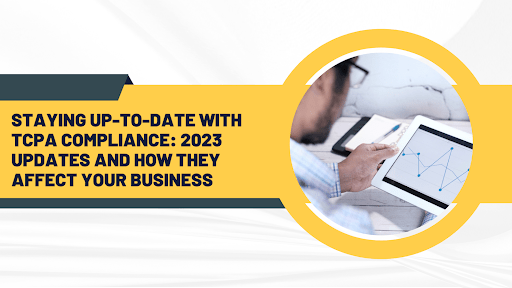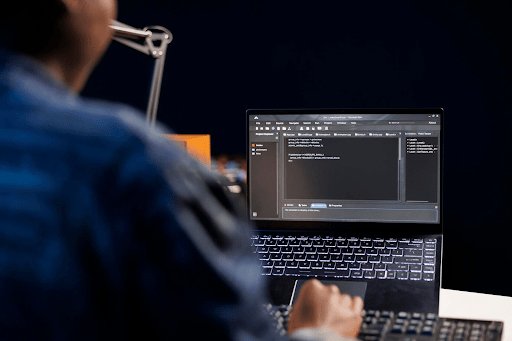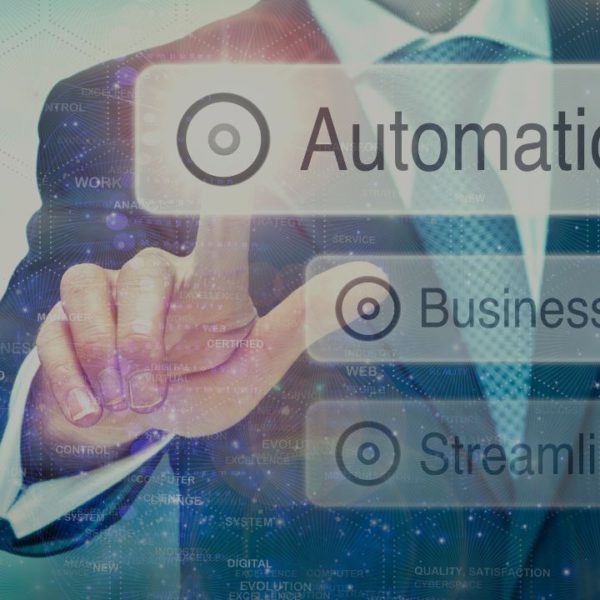With signs of economic uncertainty in the second half of the year, sales leaders across all sectors are shifting their focus to budget management and revenue support. However, sales and marketing compliance liability should not be overlooked.
Organizational risk is continuously increasing. Most organizations cannot afford to have TCPA and/or DNC violation claims made against them, let alone the potential fines and penalties.
Below, will find information on some of the most recent and proposed changes to sales and marketing compliance at the state and federal levels that may be beneficial to your organization in managing risk for the rest of 2022 and into 2023.
Table of Contents
What is the TCPA?
In 1991, Congress passed the Telephone Consumer Protection Act (TCPA) to control telemarketing calls, auto-dialed calls, pre-recorded calls, text messages, and unsolicited faxes. The National Do-Not-Call (DNC) Registry is watched over by the Federal Trade Commission (FTC), which is in charge of protecting consumers. The Federal Communications Commission (FCC) has the power to put the TCPA into effect by making rules and laws.
Pre-recorded Texts and Predictive Dialers
Although businesses are already employing it, not all know what is a predictive dialer.
A predictive dialer is an outbound calling system that automatically calls from a list of phone numbers, similar to autodialers or robot dialers. A predictive dialer automatically calls numbers until it links, at which point it hands the call to a natural person. Dialers get rid of busy signs, voicemails, numbers that don’t answer, numbers that are disconnected, and so on.
So, how are predictive dialers different from other kinds of automatic dialers? They can use call data to determine when a real person will answer the next call. That is, they set their auto-dialers to work at the same time operators are available. Suppose a call center is busy, and many agents are talking on the phone. In that case, the predictive dialer will slow down or stop calling until agents almost finish their calls.
The TCPA still stops predictive dialers from leaving notes on cell phones that have already been recorded. Many companies that use predictive dialers clean their lists by using services that tell them which numbers are cell phones and which are landlines.
The cell phones are then put on a list and a sample dialer is used to call them one by one. This is especially important when the outbound campaign leaves messages for the called party that have already been taped. These rules are especially important for campaigns that use voice broadcast dialers and, more lately, campaigns that don’t use ringtones.
Are Predictive Dialers TCPA Compliant?
After the Supreme Court decision, the answer to this question has become clearer. Determining whether or not you can use a predictive dialer for your business is not a straightforward decision. It’s important to consult with both your lawyer and your predictive dialer provider to fully understand the legal and technical implications.
When choosing a predictive dialer vendor, it’s important to ask a key question: does their dialer utilize a random or sequential number generator for storing and dialing telephone numbers? This can greatly impact the effectiveness and efficiency of your dialing strategy.
Predictive dialers have been a topic of discussion when it comes to TCPA compliance. The Telephone Consumer Protection Act (TCPA) was enacted to protect consumers from unwanted telemarketing calls and messages.
Unfortunately, predictive dialers, which are commonly used in call centers, can potentially violate TCPA regulations if not used properly. That’s why it is important for businesses to ensure that their use of predictive dialers is in compliance with TCPA regulations to avoid potential legal issues.
What does the TCPA prohibit?
The provisions of the TCPA cover and ban a wide range of call center and telemarketing operations, such as:
1. Automatic dialing systems for phones (ATDS)
In general, the TCPA says that an ATDS or prerecorded message can’t be used to call a cell phone, and prerecorded telemarketing messages can’t be used to call a home phone unless the receiver has given “consent” and hasn’t changed their mind.
An ATDS is equipment that can store phone numbers. Using a random or sequential generator, this equipment can dial the numbers stored in the system. The FCC has decided that an ATDS also includes a predictive phone.
When determining whether a system is an ATDS, the FCC, and the courts often consider whether it can “dial numbers without human intervention.” For example, if a person has to click to dial each number, the system might not be an ATDS since each number has to be dialed by hand.
2. Internal Lists and the Do Not Call (DNC) Registry
A change to the TCPA makes it illegal for marketers to call lines on the federal DNC Registry unless there is an exception–many states also have their own, separate DNC lists. Also, companies have to keep their own DNC list of customers who have asked not to be called or texted anymore.
Under the TCPA, telemarketers and debt collectors who use an autodialer are not allowed to do certain things, such as calling a customer before 8 a.m. or after 9 p.m. During any call, the caller must also give their name, the name of the company they are calling on behalf of, and a phone number or address where the person or business can be reached.
3. Identification and Disclosure Requirements
The law says that when a caller is on the phone with a customer, they have to give their name, the name of their company, and their contact information, among other things. Caller identification information has to include both the calling party number or automatic numbering information, as well as the telemarketer’s identity if made available by the telemarketer’s carrier.
4. Time to Call
Companies can only try to reach customers between 8 a.m. and 9 p.m. in the time zone of the customer. Once beyond that, companies can no longer call numbers. Keep in mind, though, that many states have their own rules about when you can call. No one or no entity may call a residential telephone subscriber before 8 a.m. or after 9 p.m. (local time at the called party’s address) to try to sell them something.
Businesses don’t just need the help of lawyers to stay in compliance. They also need people who know a lot about technology on their side, as well as tools they can rely on, to keep up with the constantly changing world of call center standards.
TCPA compliance should be at the core of any plan to help outgoing sales and lead generation teams choose the right outbound dialer. Look for a phone that has the following TCPA compliance software and solutions so that you can build a compliance plan that doesn’t stop you from growing your contact center.
Compliance in a call center means following the rules and laws that make sure everyone is treated fairly and keep data safe. It’s not surprising that contact centers with outbound efforts often focus on making more money instead of thinking about the risks to customer privacy.
This usually leads to dissatisfied outreach efforts, higher drop-out rates, few people picking up on the message, and cases that look like spam.
How do you stay in line with the TCPA?
Here is a list of things you need to do to follow the TCPA so you don’t get fined:
- Use a current call list
- Get agreement
- Implement an opt-out method
- Limit the hours of calling
- Use verified numbers
- Auto-dial lines after getting permission
- Employees should be trained on how to comply with the TCPA
Conclusion
Compliance with the Telephone Consumer Protection Act is a crucial aspect of business operations that cannot be neglected. As we enter 2023, businesses must remain current on the most recent TCPA regulations to ensure compliance with the law.
One area of particular concern is the improper use of predictive dialers, which can be a valuable business tool but also pose significant risks if not employed properly. By remaining informed and instituting best practices for TCPA compliance, businesses can reduce the likelihood of incurring expensive fines and legal action.
Ultimately, sustaining TCPA compliance is not only a legal requirement but also a crucial component of protecting your company’s reputation and retaining your customers’ trust.
Frequently Asked Questions
Q: What is a big part of calling that complies with the TCPA?
A: The business name and phone number should be shown on the caller ID so the person who gets the call can call the company. Solicited calls can’t use a recording or a person that isn’t real.
Q: What does it mean when a call has a mark that says “verified by the carrier”?
A: A call with a checkmark means that the FCC has checked out the caller and has passed the STIR/SHAKEN checks. It makes it less likely that someone will report you as spam.
Q: What is registration for CNAM phone ID?
A: This shows the name and number of your company on the recipient’s phone, making it easier for them to know who is calling and likely that the call will be answered.

I am a passionate, adventurous, and insatiate learner who loves to write about the latest technology trends. My experience working in an MNC has motivated me to understand that there are certain niche requirements for writing strategically about brands’ messages towards people’s interests which I’ve mastered over time through trial and error of many projects under various clients across diverse industries. It is my honest effort to put my experiences and knowledge of industry towards readers.






